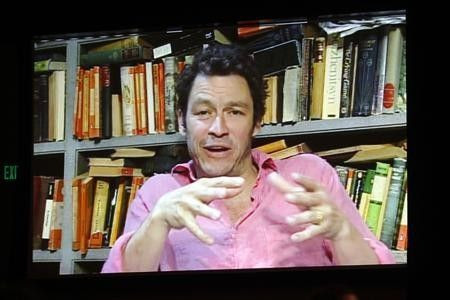BBC America Travels Beyond "Doctor Who" for New Hits

If you thought BBC America was all about time-traveling doctors and men behaving badly in cars, get ready to adjust your TV set.
The cable network that introduced Americans to colorful British talent like Ricky Gervais, chef Gordon Ramsay and the car series "Top Gear" is making a big push into original programing in a bid to better compete with fast-growing U.S. channels.
Think "Mad Men", but with cut-glass British accents and a political thriller element, and you have "The Hour" -- a six episode new co-production beginning on August 17, that will launch BBC America's "Dramaville" block every Wednesday night.
Starring Dominic West of "The Wire", "Atonement" actress Romola Garai, and critically-acclaimed young Briton Ben Wishaw, "The Hour" is set in the fledgling world of investigative television news in 1956 London.
But "The Hour" is just a taste of things to come, says BBC America general manger Simon Perry.
Thirteen years after it was established in 1998, the cable channel has just announced its first original scripted drama
-- a series called "Copper" set in the immigration melting pot of 1860s New York and featuring a young Irish police officer. It will debut in the summer of 2012.
It has also given the go-ahead to two new reality series featuring BBC America favorites, talk show host Graham Norton and "Top Gear" presenter Richard Hammond, and the network has five other unscripted pilots in development.
"We have seen that signature original shows are how cable channels break through and create a bigger profile with audiences and the ad sales community and take channels to the next level," Perry told Reuters.
BREAKING BIG
It's a strategy that has worked for many U.S. cable channels including AMC, which has reaped multiple Emmy wins and added millions more viewers since 2007 by developing dramas like "Mad Men", "Breaking Bad", "The Walking Dead" and "The Killing".
The changes have been more than a year in the making but they come as BBC America is coming off its best quarter yet. More than 1.3 million viewers tuned in to watch the 6th season premiere in April of classic British sci-fi series "Doctor Who", giving BBC America its biggest ever audience.
"Our ratings are up 30 percent this quarter over last year, advertising sales are up 40 percent, so there was never a better time than now to take the plunge," Perry said.
Perry declined to comment on costs, but Hollywood trade paper Variety has reported that the channel's programing budget has been tripled for the next five years. BBC America is owned by BBC Worldwide, the commercial arm of the publicly-funded BBC, and can be seen in 68 million U.S. homes.
The influx of new programing doesn't mean that BBC America will lose its uniquely British character, nor abandon its philosophy of presenting shows that are "intelligent, innovative and at times irreverent," Perry said.
Many of the shows in development build on familiar names, including "Top Gear" presenters Richard Hammond and James May, and comedy talk show host Graham Norton.
"We are trying to give the audience more of what they already love, and build from that strength," said Perry.
For all the comparisons that have been drawn by TV industry watchers between BBC America's "The Hour" and AMC's "Mad Men," producers say the drab world of post-war London depicted in their show has little in common in tone or character with the aspirational advertising men and women of 1960s New York.
As Abi Morgan, creator of "The Hour" told television journalists recently; "America was all great and big and shiny...and we were all held back by tea pots and rather bad plumbing. That's what we wanted to show."
© Copyright Thomson Reuters 2024. All rights reserved.





















